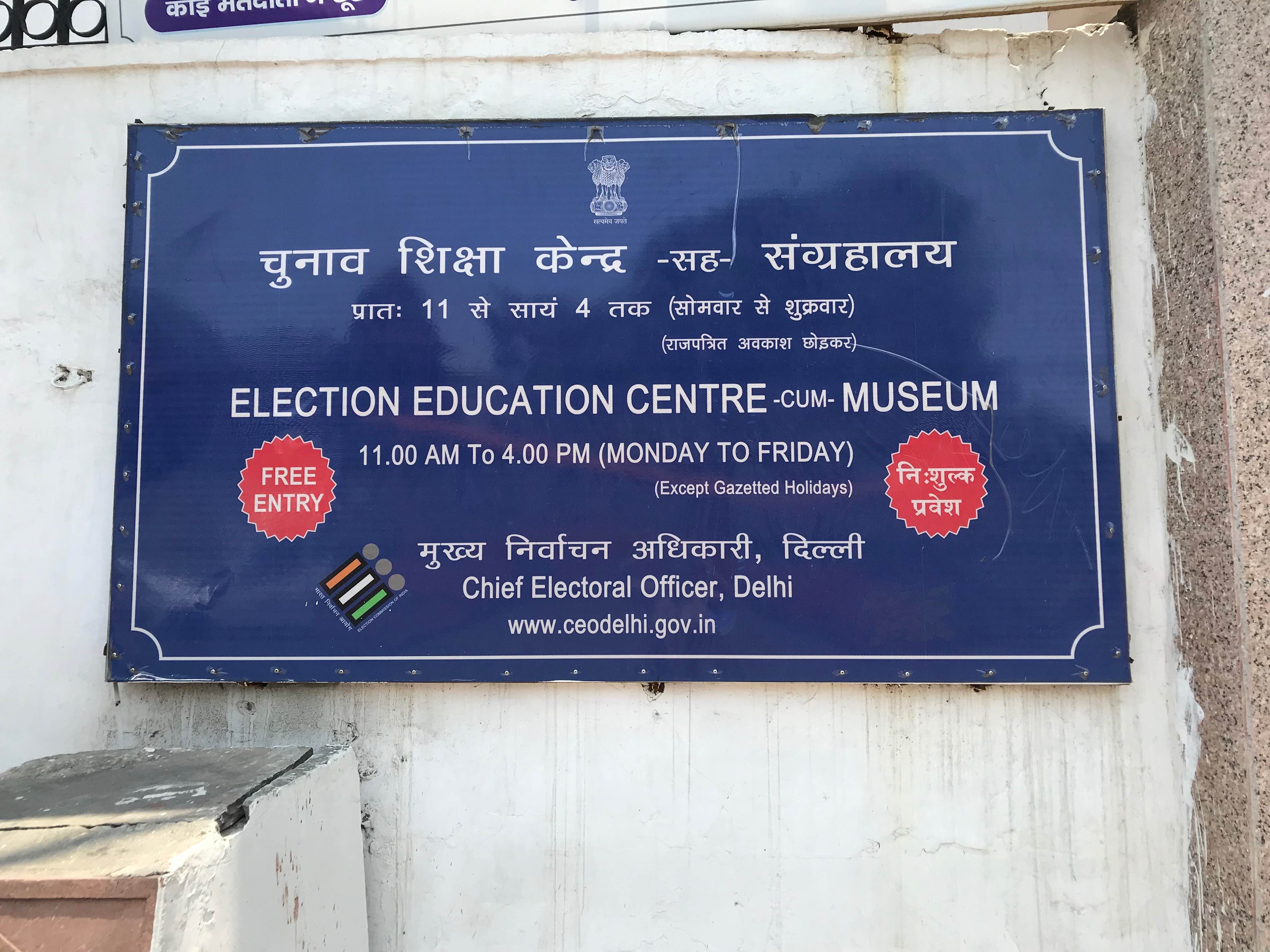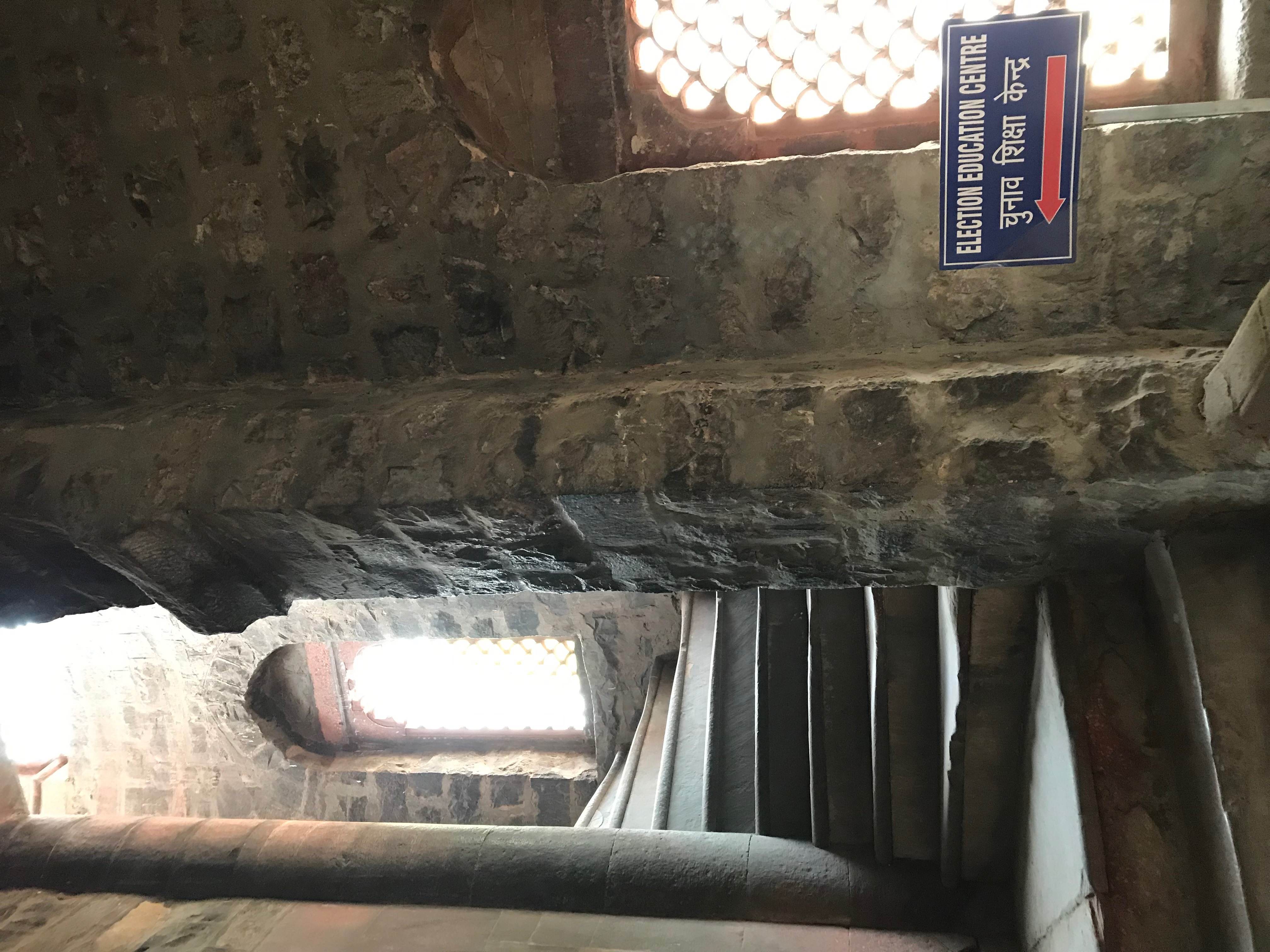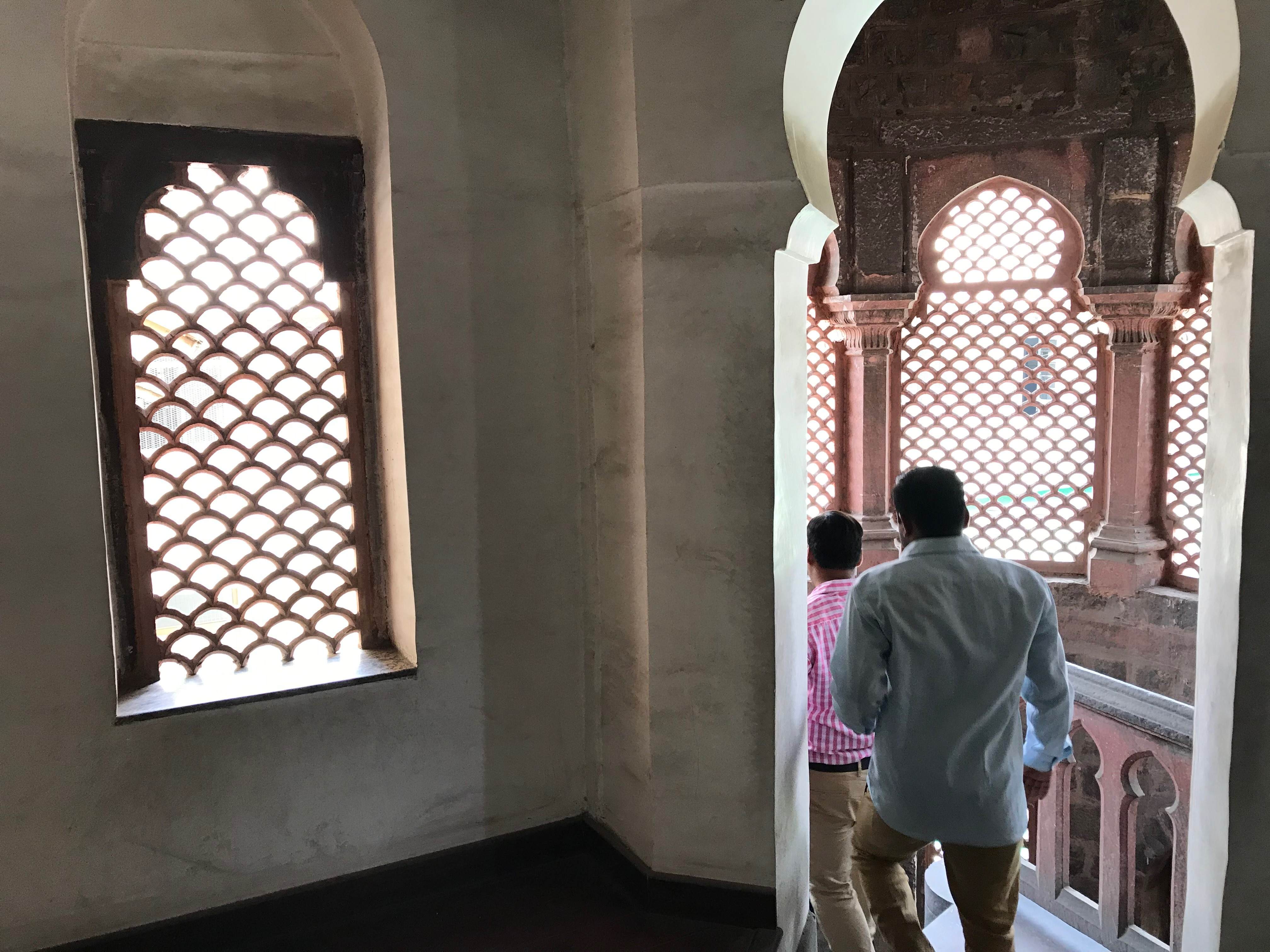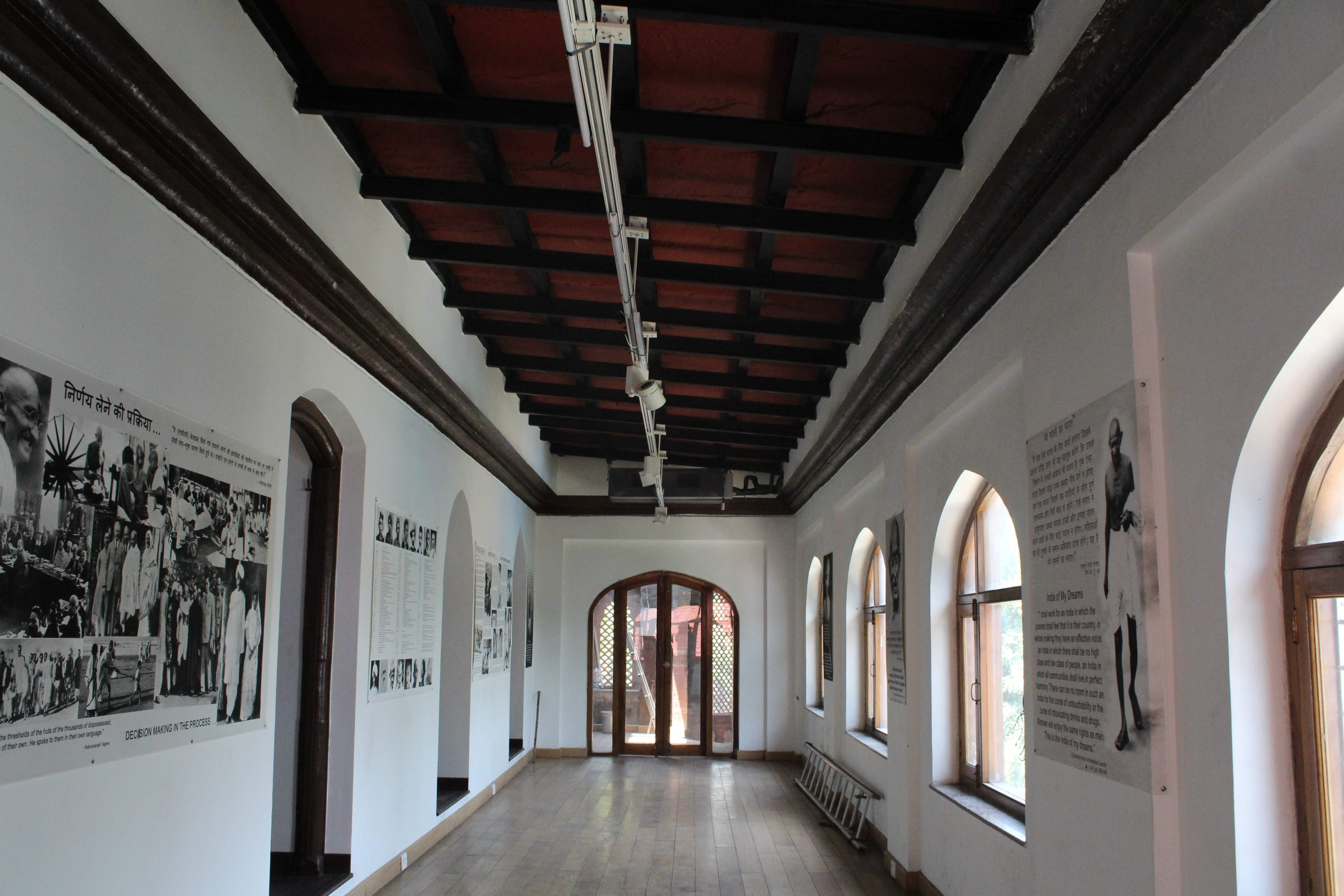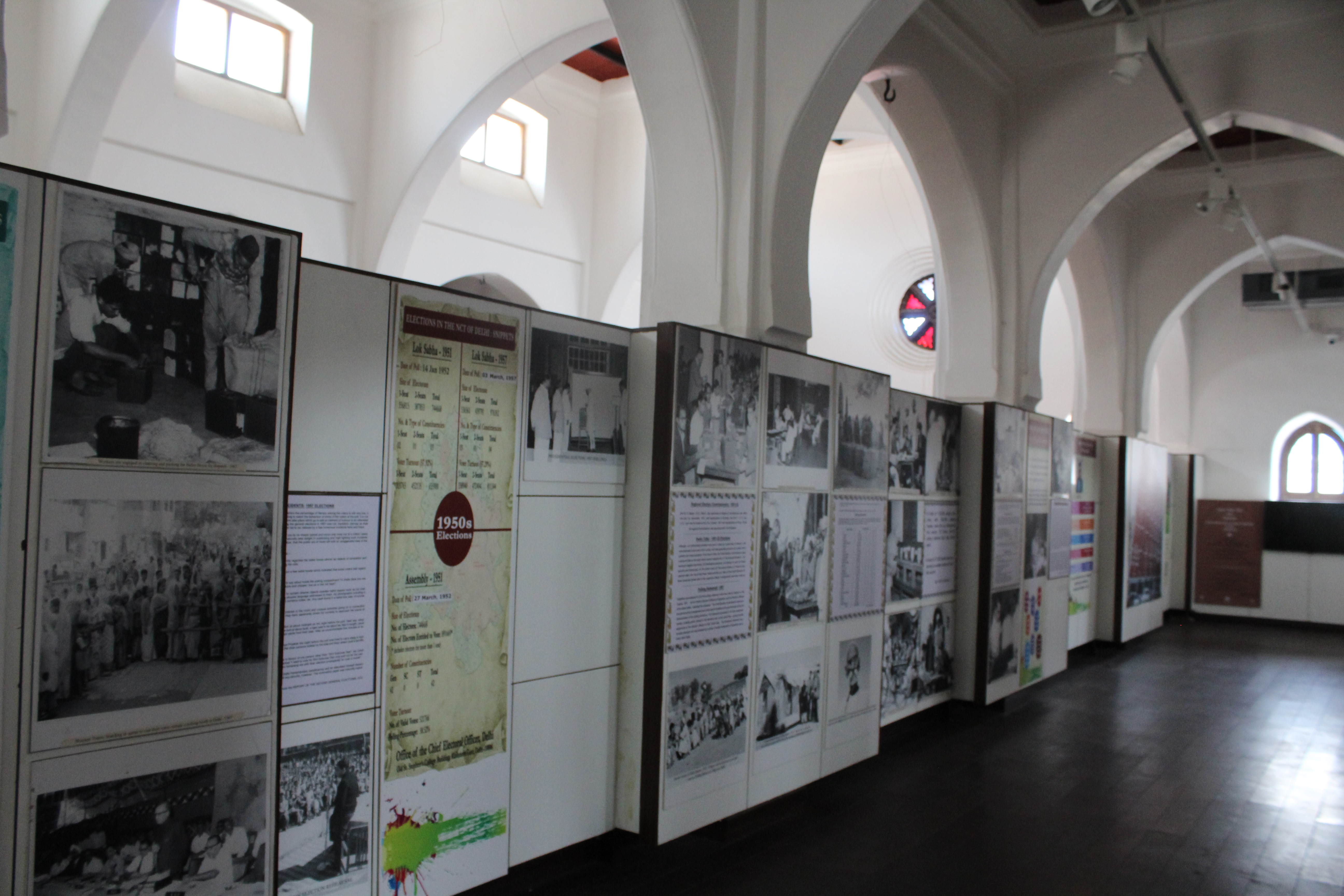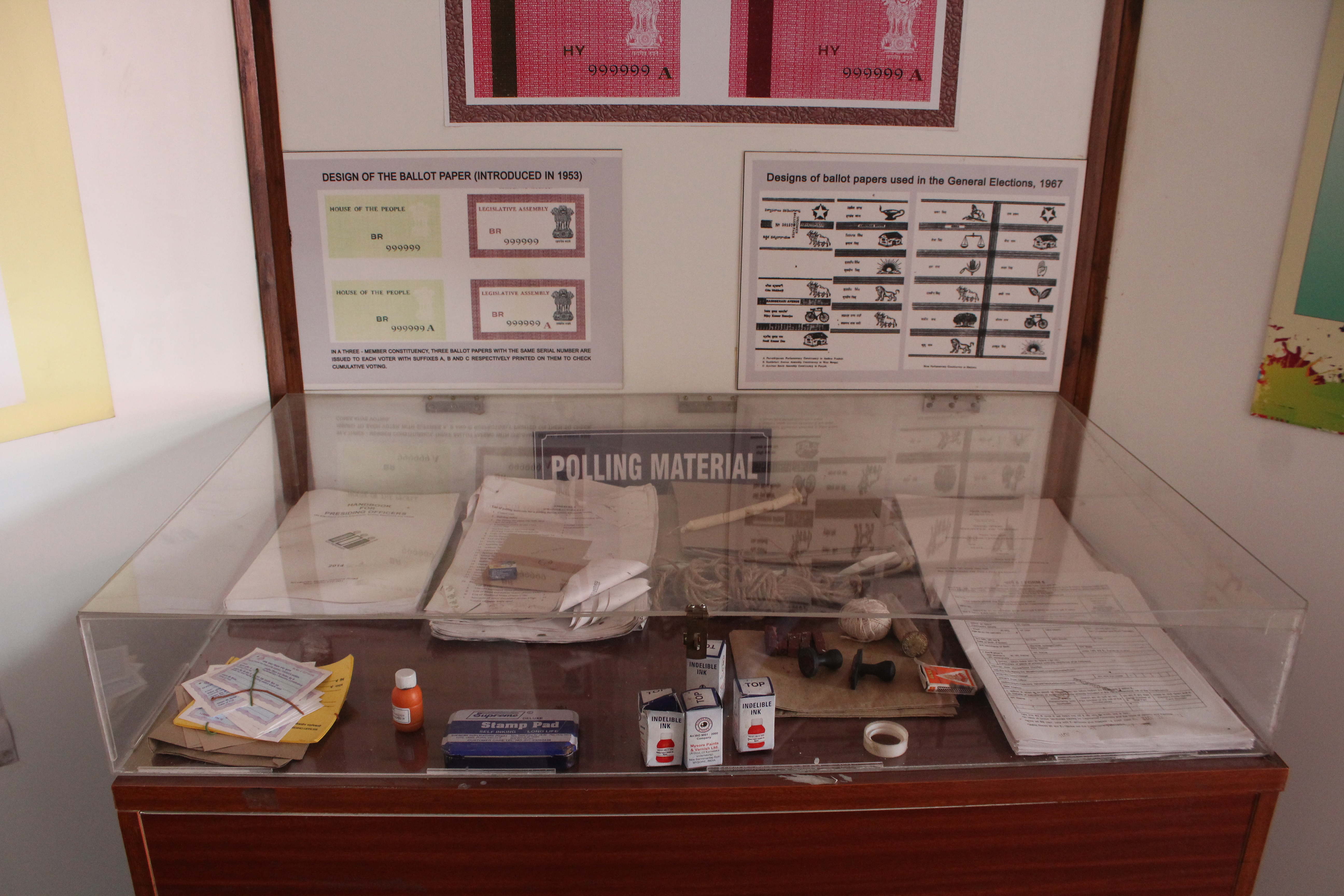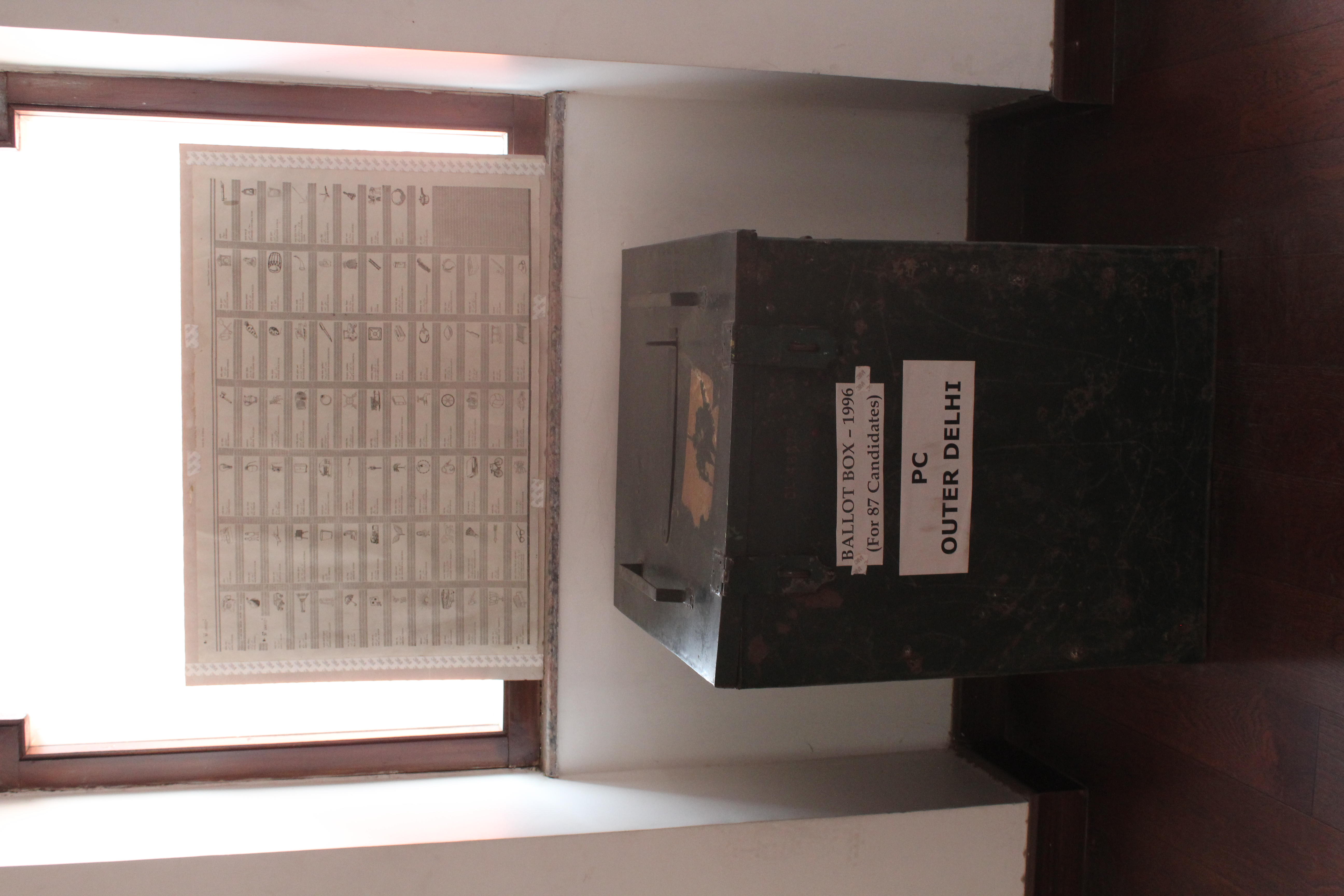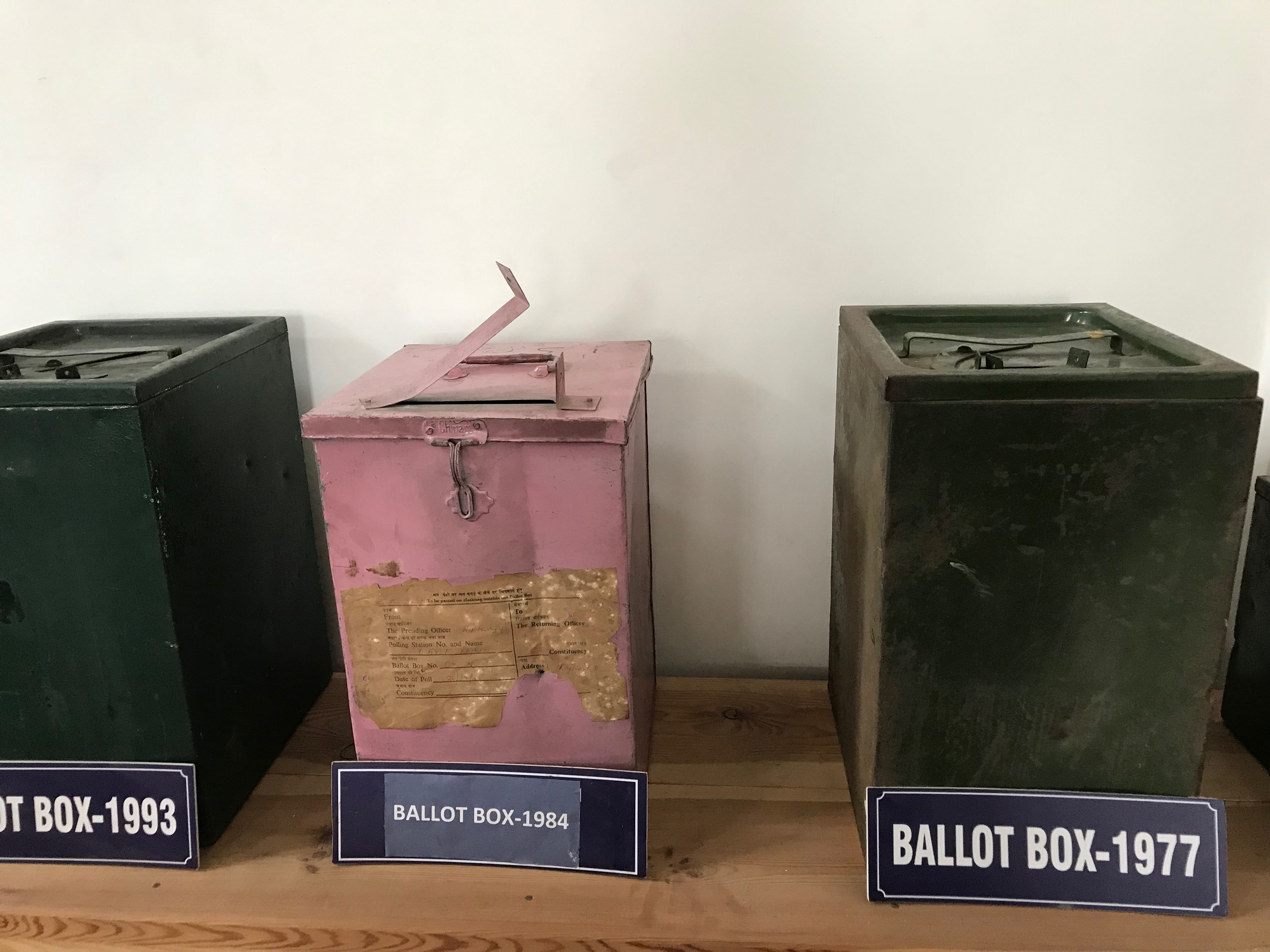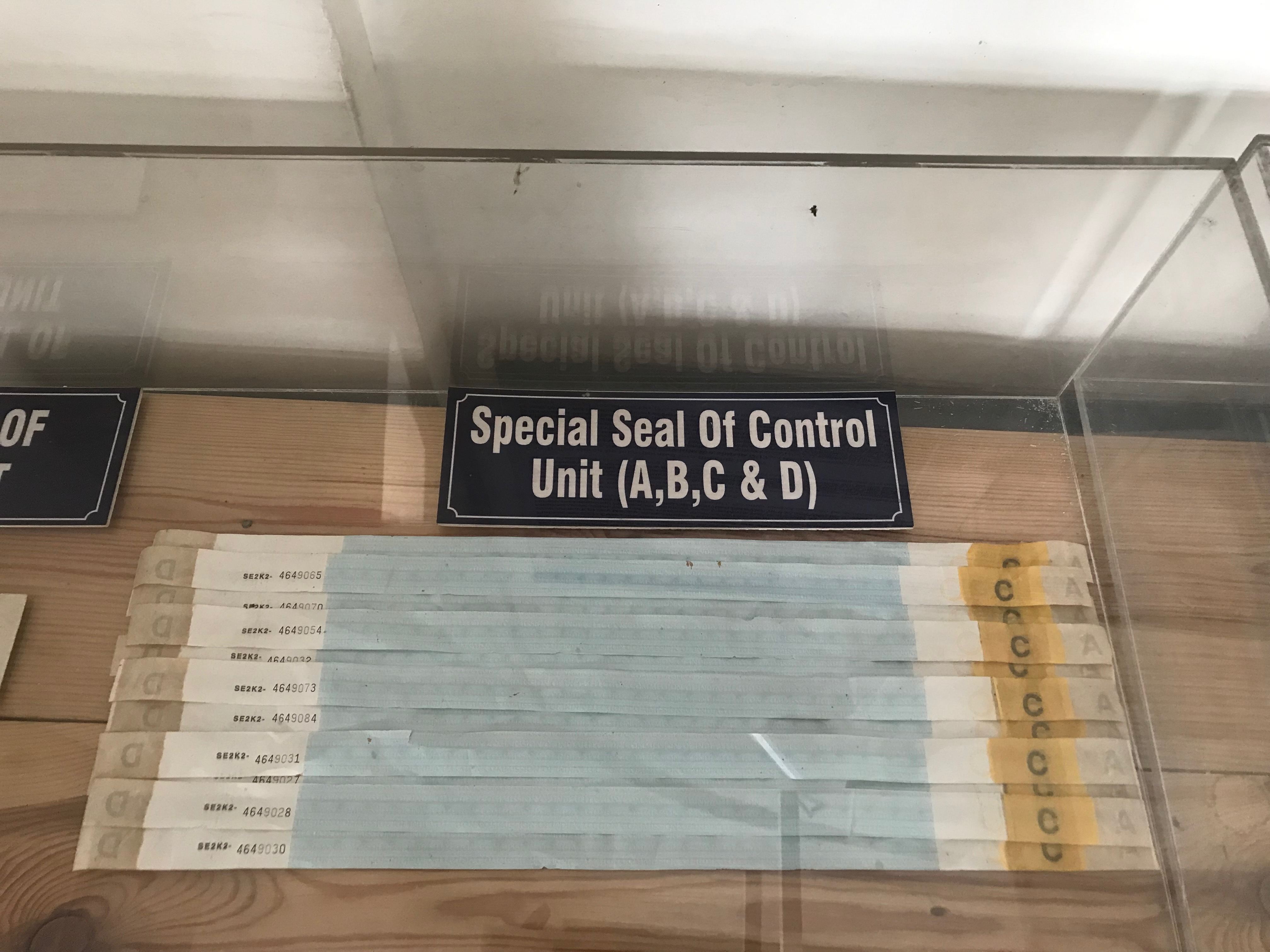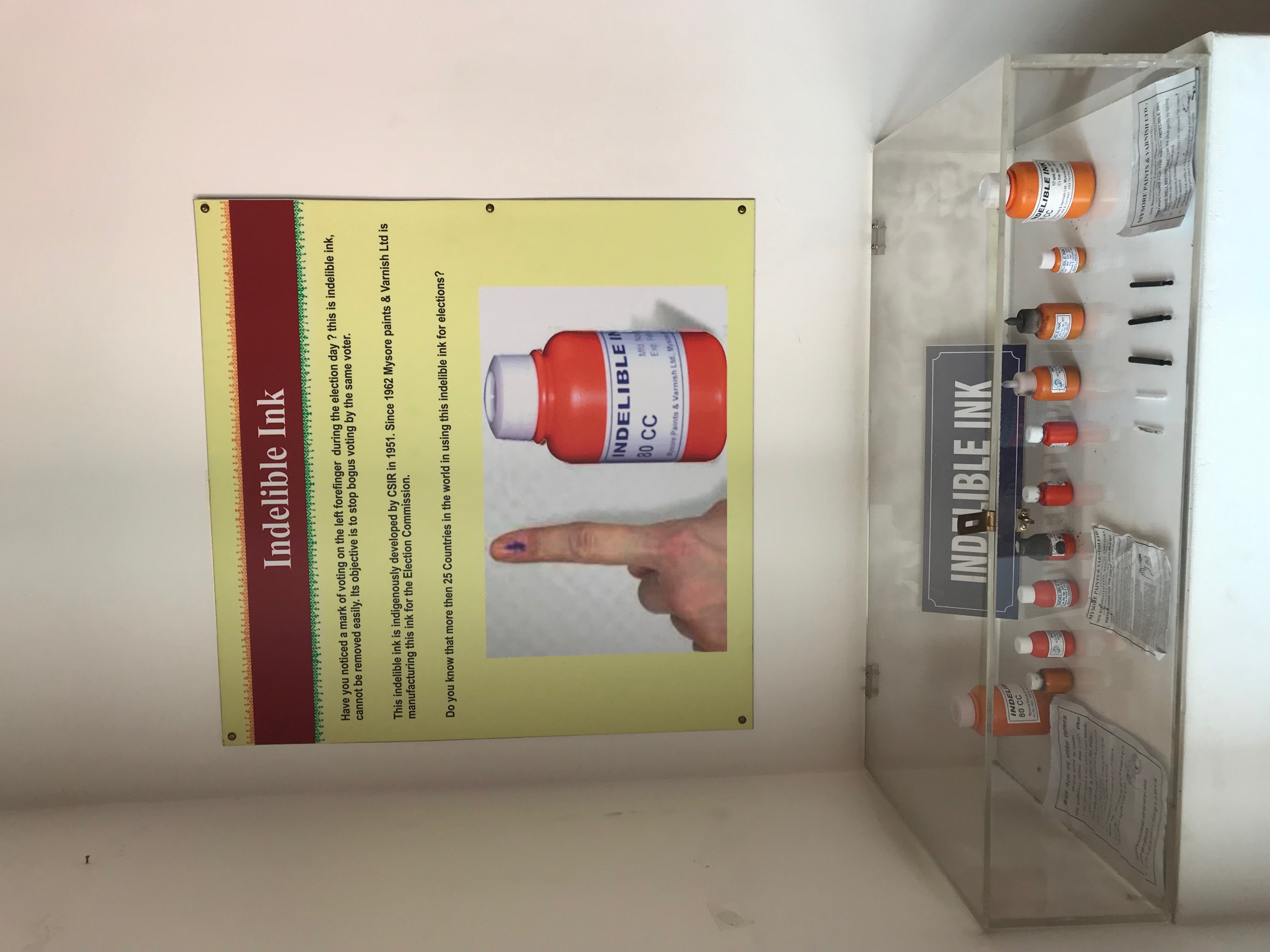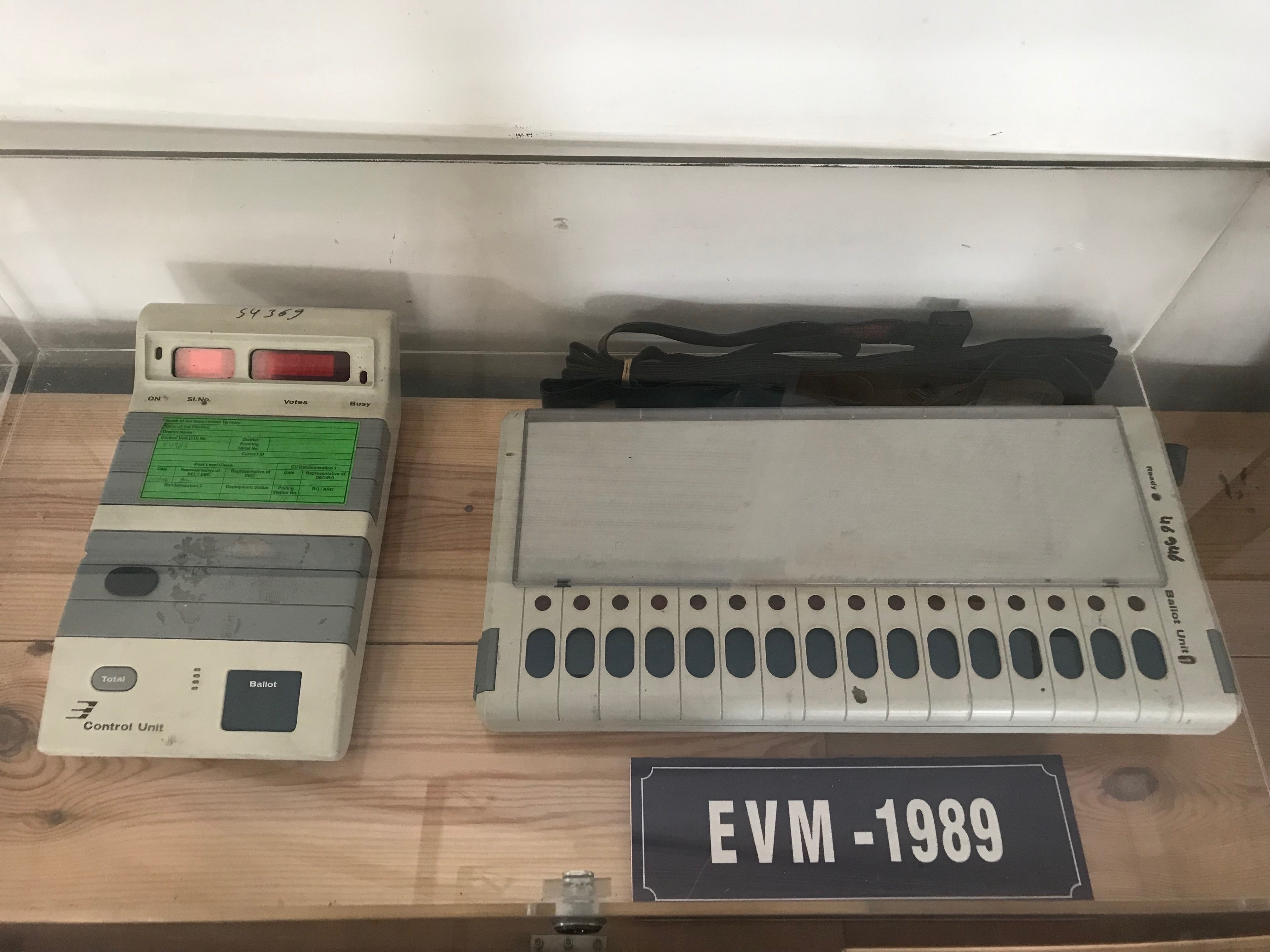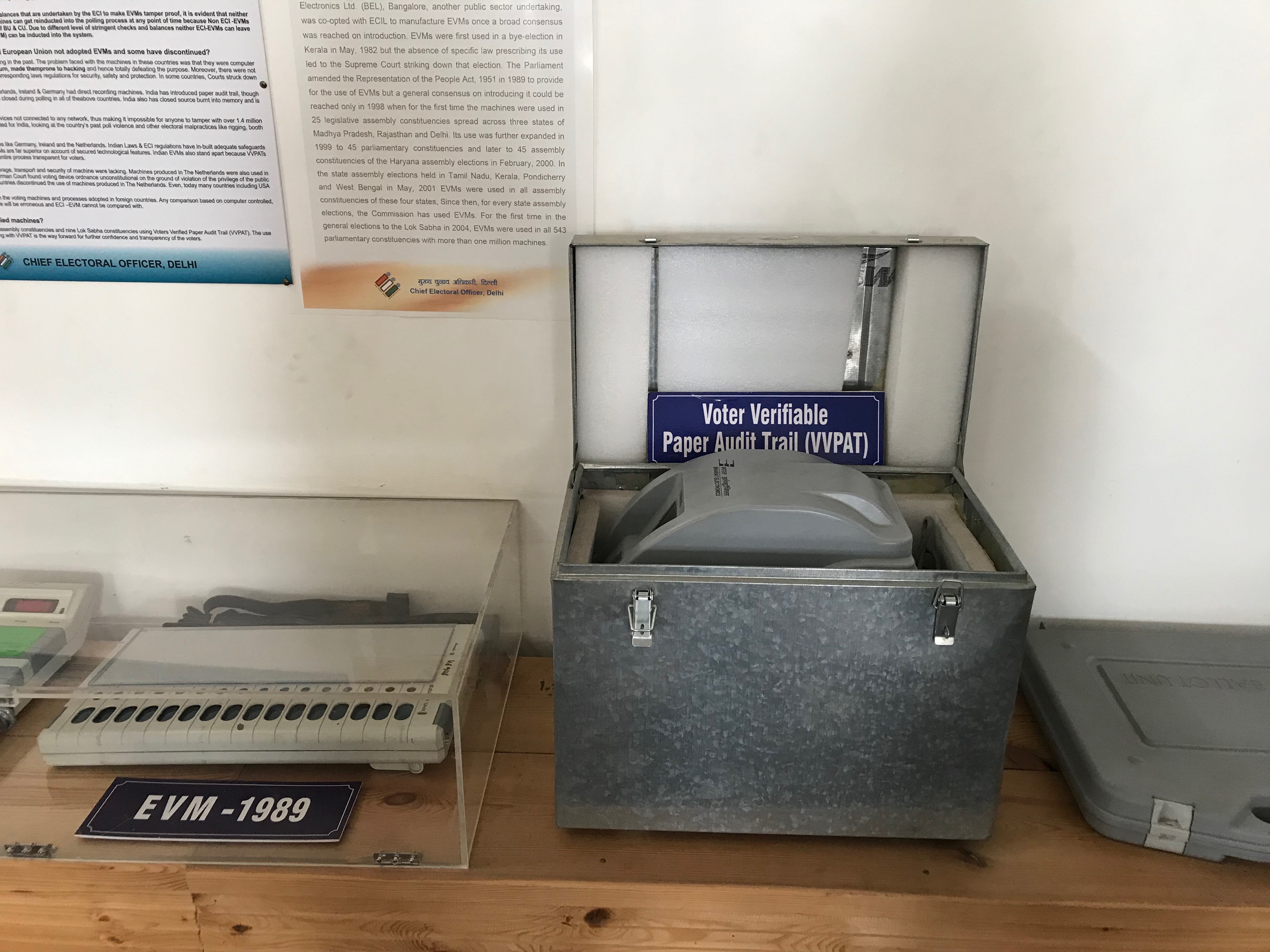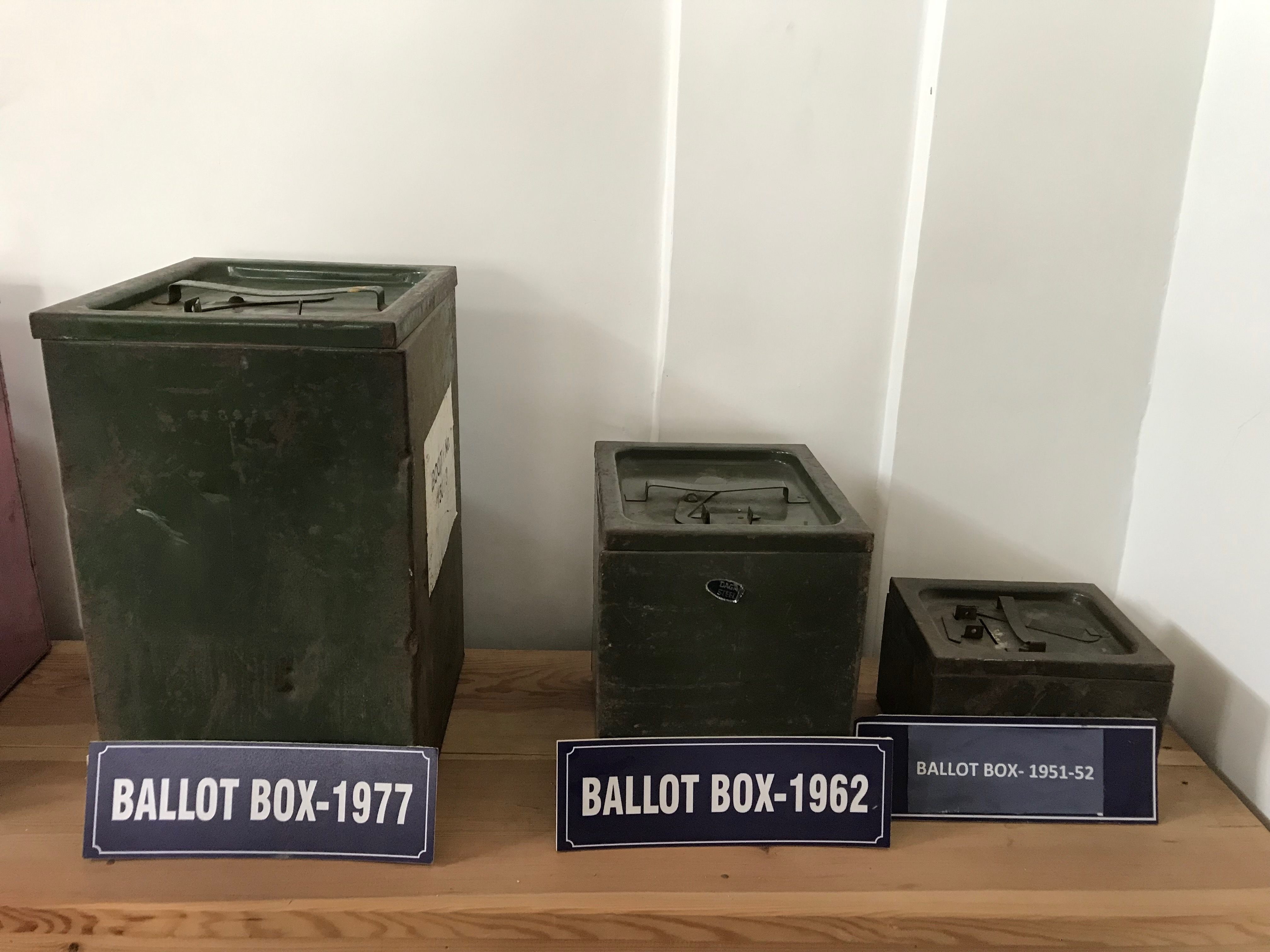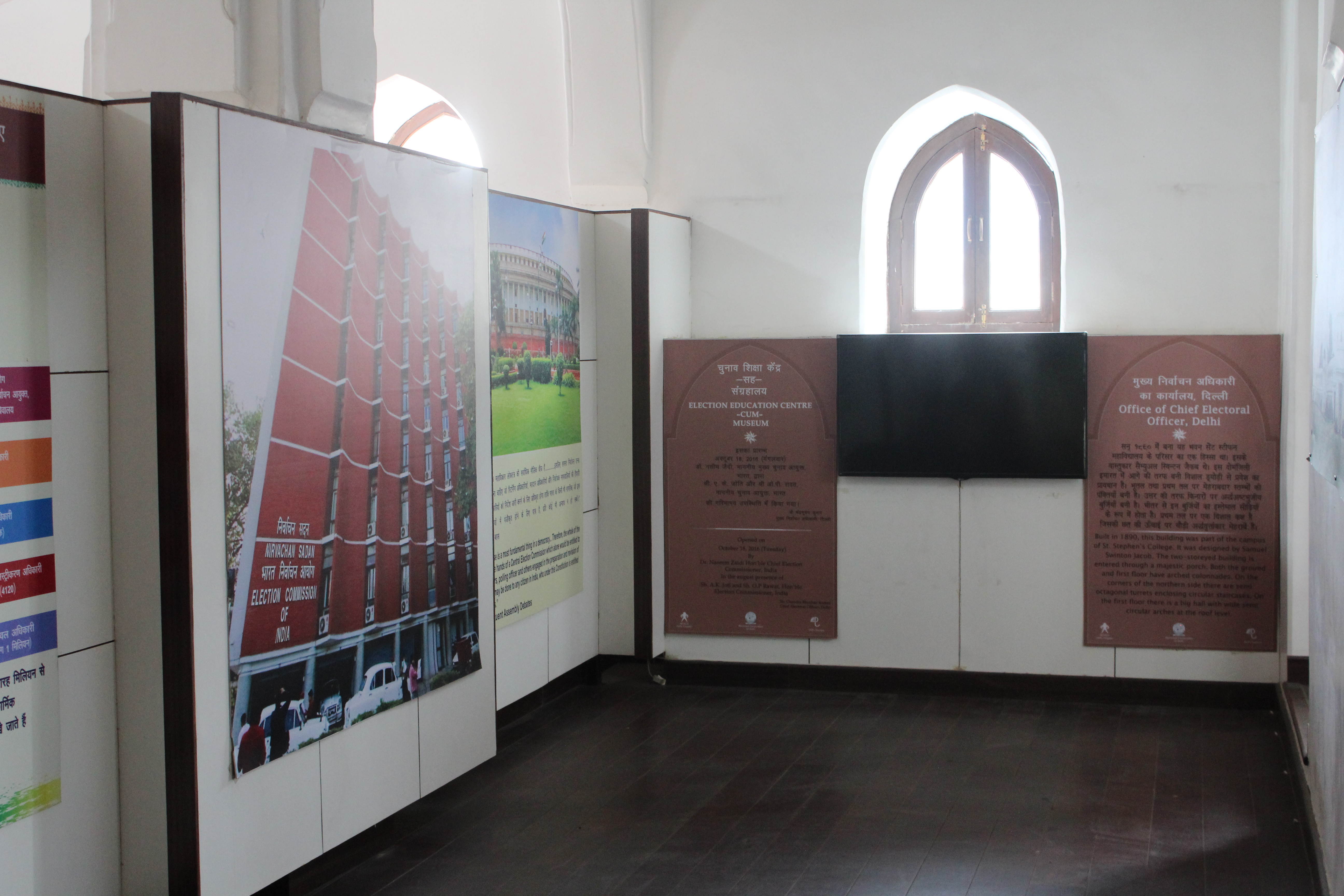Museum Address
Old St. Stephen's College Building, Lothian Road Kashmere Gate, Chabi Ganj
Email
ceomuseum.delhi@gov.in
Museum website
https://ceodelhi.gov.in/electionmuseum/
Are there any docents or guides who visitors can directly call to book for a guided tour?
Yes
When was the museum established?
2016
Briefly describe the history of the museum, its collection and donors.
The building where the Election Museum is housed predates Independence. Originally built in 1890, it used to be a part of the campus of St. Stephen’s College, and was subsequently transferred for the use of the Chief Electoral Office in the 1960s. It was finally converted into the Election Museum in 2016.
The museum is a curated collection of India’s electoral journey through artefacts, photographs, documents and archival film footage. Special interactive booths have also been installed, an important one being the ‘voter’s pledge section’, where visitors can take a pledge to vote and then take a selfie.
One of the most memorable elements on display at the museum are items that have been used by voters throughout the years. The different ballot boxes, EVMs and, most recently, EVMs with VVPAT are the first things a visitor observes during her/his guided tour. The museum also lives up to its promise of being an educational center, as it provides answers and information regarding commonly held misperceptions about voting and voting procedures. In addition to this, the staff of the museum also undertakes several awareness campaigns to encourage people to vote in elections, and often integrates these campaigns with screenings and tours of the museum.
A must-see artefact in the museum is the booklet containing the names and affiliations of the largest set of candidates to have ever contested in national elections—a figure crossing a thousand! In a similar vein, another significant artefact on display is the ballot box, used during the state elections when the largest number of candidates ran for office.
Workshops/seminars/lectures
Yes
Library and archives services
Yes
IT facilities ( Photocopying, printing, computer )
No
Conference/ Seminar hall
Yes
Who manages the museum?
Others
Others:
Chief Electoral Office, Delhi
Person-in-charge of the museum
Other
Reference Link
1. Museum tour guides 2. Election Officer – Museum in-charge 3. Brochures of the museum 4. Delhi Tourism official website - http://www.delhitourism.gov.in/delhitourism/entertainment/Election_museum.jsp
What is the average duration to see the museum?
less than 1 hour
Map your museum’s correct location on the map given below.
Is the museum currently closed?
No
Image for museum exterior/building
Gallery Images
Image title
Entrance to the Museum
Image title
Visitors at the museum
Image title
Outer facade of the Election Museum
Image title
Visitors at the museum
Image title
The Gandhi Gallery
Image title
Gallery Space 1
Image title
Materials used during polling
Image title
Ballot box used for the state election with the largest number of candidates
Image title
Early versions of ballot boxes
Image title
Special seal of the Control Unit
Image title
Indelible ink used in elections
Image title
An Electronic Voting Machines (EVM)
Image title
A VVPAT machine
Image title
Older versions of ballot boxes
Image title
A letter issued by the Deputy Commissioner of Delhi to all Polling Officers, dated August 23, 1930, handing over the key of the polling box along with the details of the material in the election kit
Image title
Gallery space
Image title
Foundation stone at the end of the Entrance Gallery
Opening Days
Monday
Tuesday
Wednesday
Thursday
Friday
The best time of the day to visit the museum?
The museum doesn’t attract large crowds so any time is ideal.
Interesting things about the Museum
1. This is India’s first Election Museum
2. During election season, the central gallery also doubles up as the ‘Press and Archives’ area, where all information related to the election in the national or local media is monitored
Most uninteresting aspect of the museum
Despite being an ‘educational centre’, the museum does not display information in Hindi, limiting its reach and accessibility to certain sections of people.
a. Helpfulness (guides, guards, curator, director)
Above average
b. Approachability (curator, director)
Average
c. Washrooms
Below average
Name of Museum Surveyor
Zobia Salam
